Discussion on Health and Wellness in Nursing (Module 4)
VerifiedAdded on 2021/12/13
|5
|942
|106
Discussion Board Post
AI Summary
This discussion board post, originating from a nursing module, examines the multifaceted concept of health and wellness. The author initiates the discussion by highlighting the importance of preventative care, the impact of socioeconomic status on access to healthcare, and the significance of early diagnosis through cervical cancer screening. The post also delves into the influence of cultural diversity on patient care, illustrating this with a case study where cultural sensitivity was crucial in providing appropriate care. Furthermore, the post includes responses to other students, addressing the impact of time constraints on healthcare access and the importance of communication and cultural understanding in patient care. The discussion emphasizes the need for nurses to consider both socioeconomic and cultural factors to deliver effective and equitable care.
1 out of 5
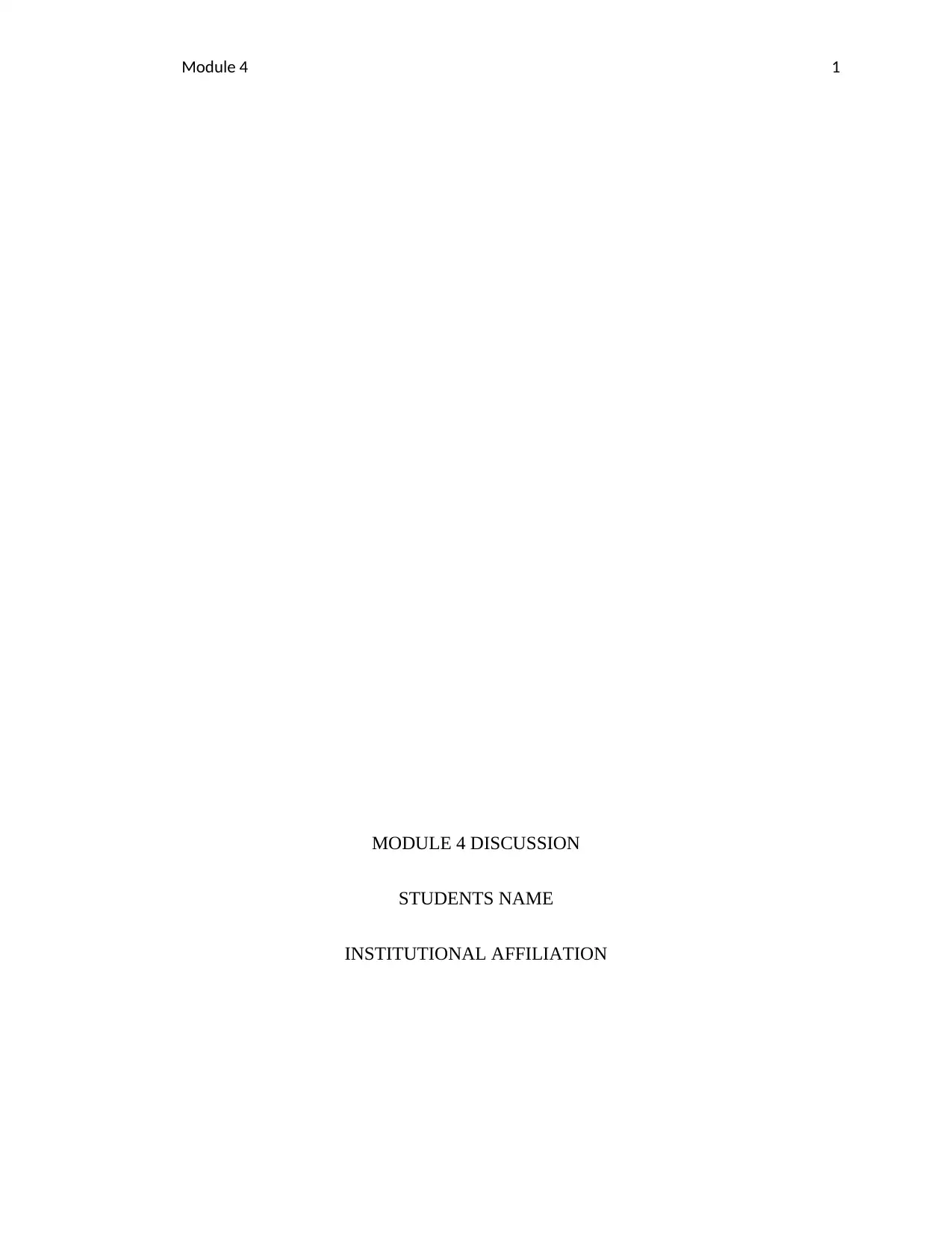
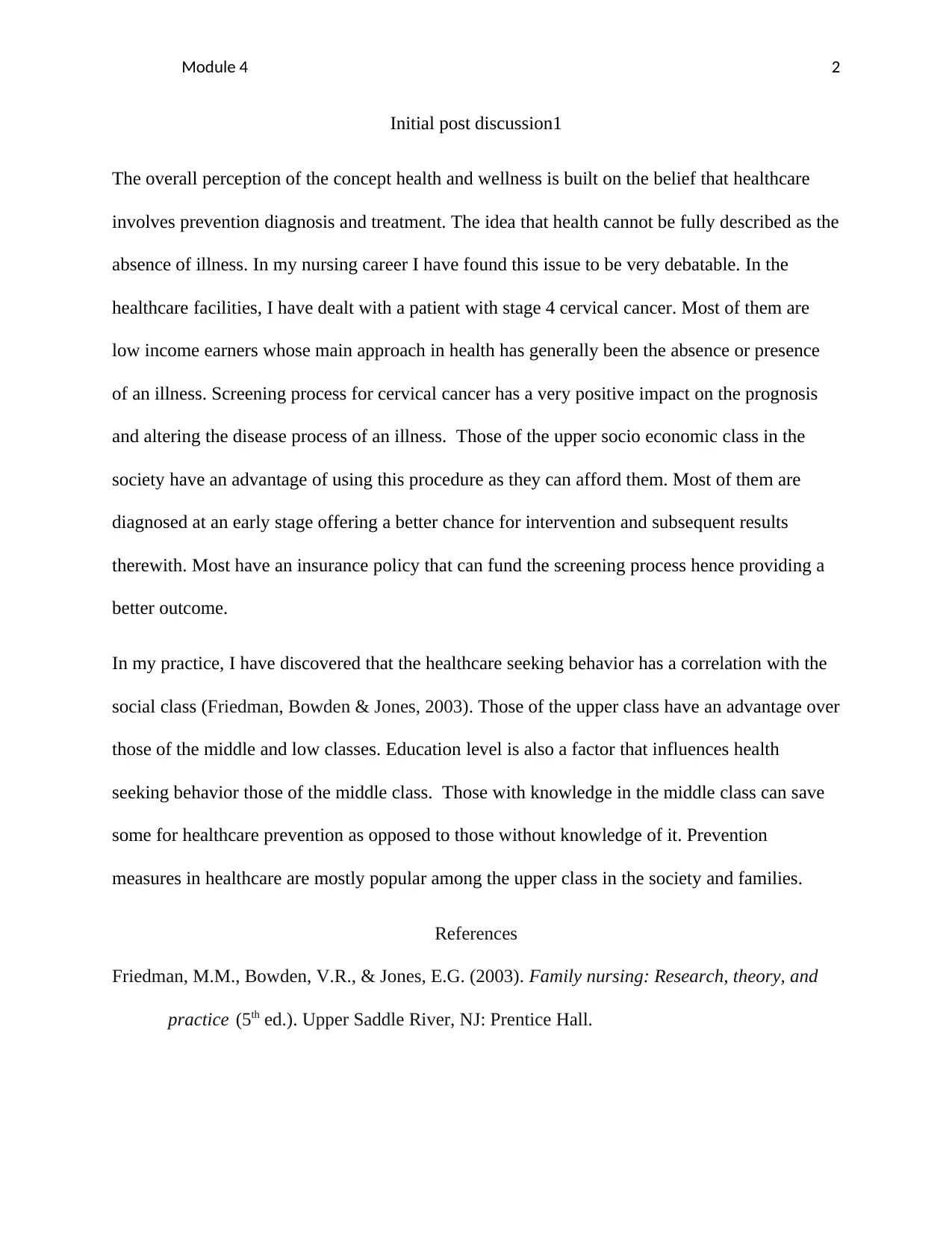
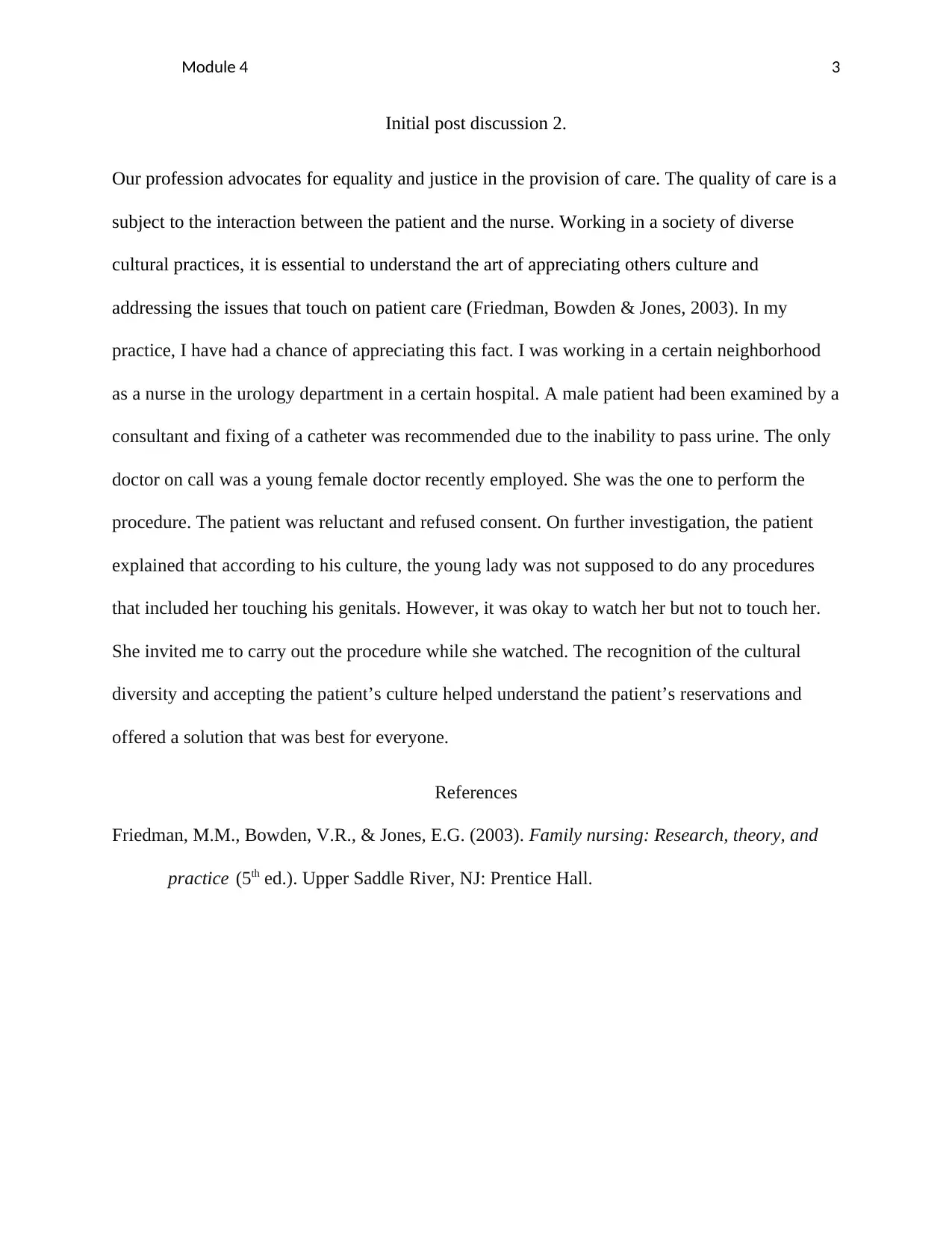

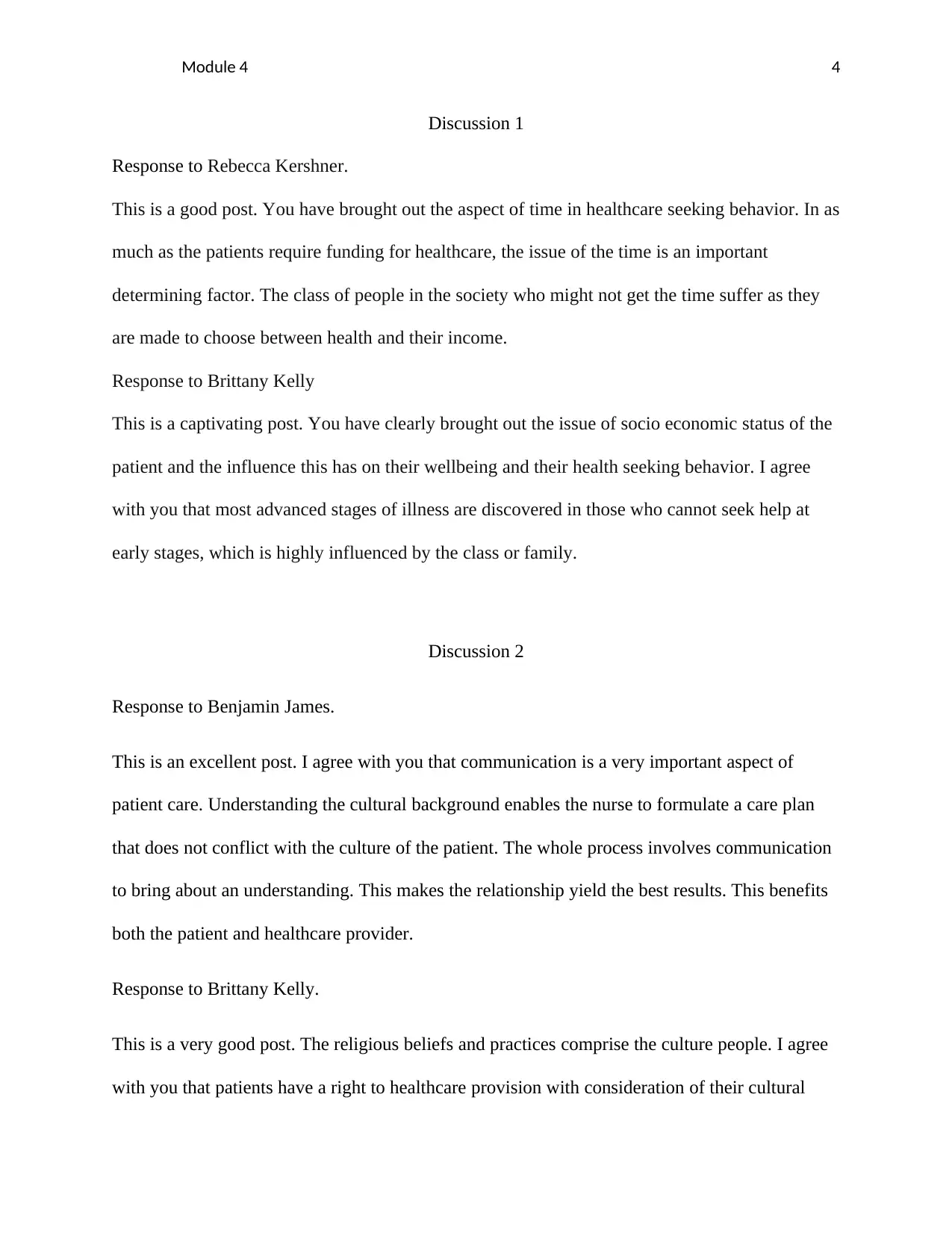
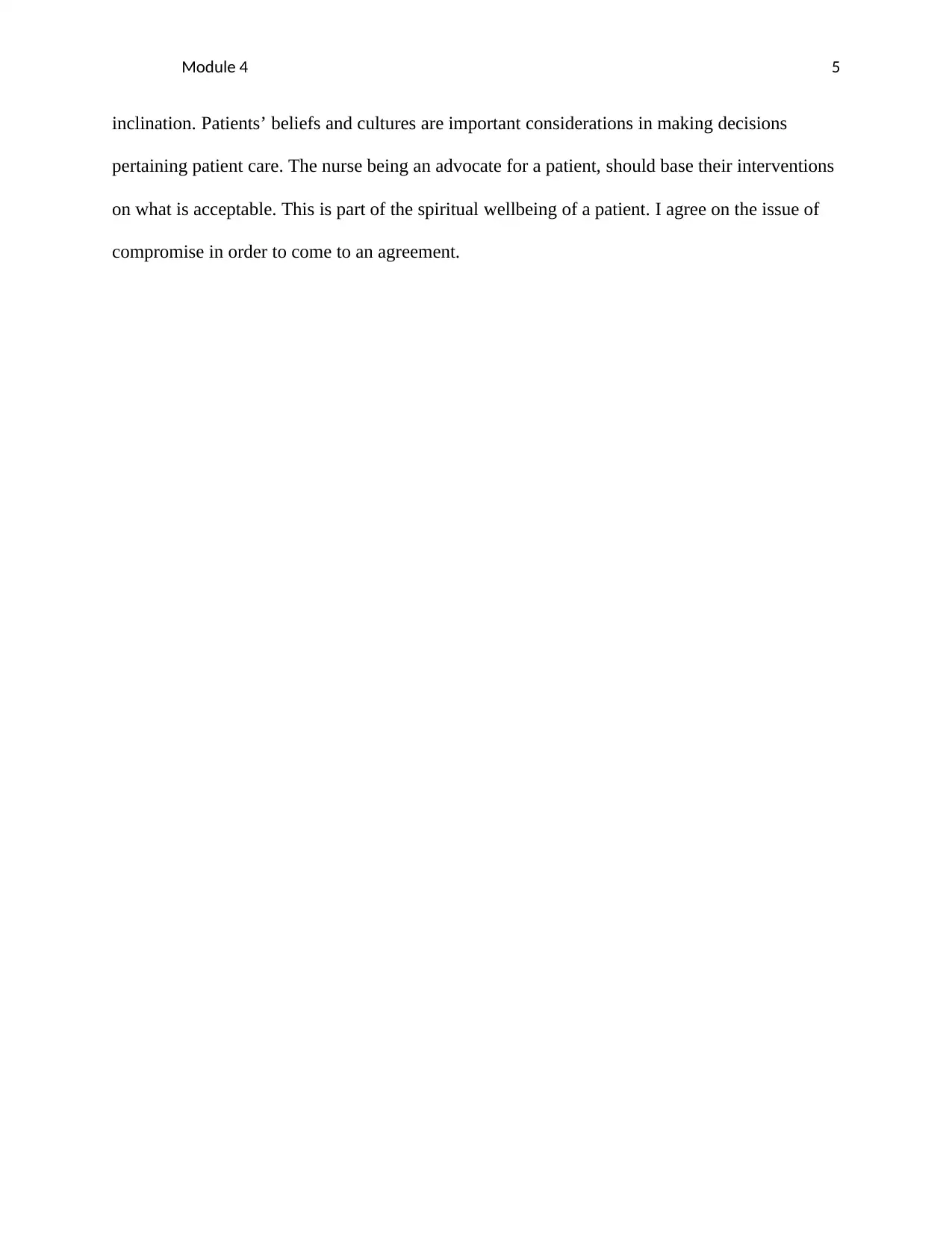

![[object Object]](/_next/static/media/star-bottom.7253800d.svg)